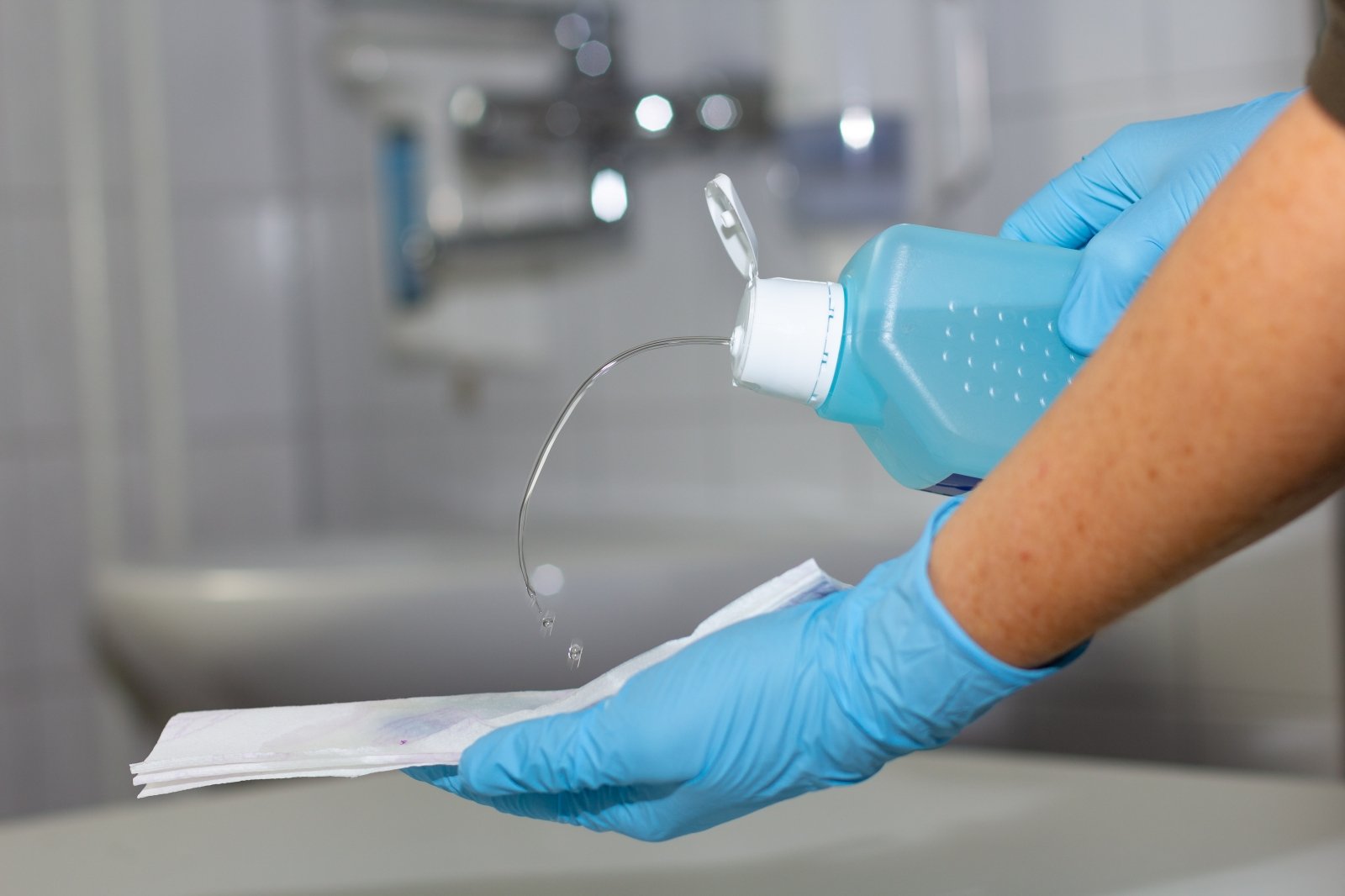
[ad_1]
If your loved one has coronavirus, it is best to isolate themselves in another home, but if this is not possible, all facilities in the home should be thoroughly disinfected. According to Asta Razmienė, Head of the Public Health Security Control Division of the Vilnius Department of the National Center for Public Health, the facilities where people with coronavirus are present should be cleaned regularly. Disinfection, he said, is only the final stage of cleaning, but not the most important. It is necessary to know that viruses, bacteria “hide” under dust, dirt, and if we do not remove dirt by mechanical cleaning, disinfectants will not reach the viruses and destroy them.
“While the person is ill, it is necessary to clean and disinfect the room where the patient is cared for at least once a day, as well as mechanically clean frequently touched surfaces such as bedside tables, bed bases and other bedroom furniture”, explains the expert.
Continue to prioritize disinfection, both during and after illness, on frequently touched surfaces such as doors, windows, cabinet handles, electrical switches, stair railings, kitchen areas, countertops, bathroom surfaces, toilets and water taps, computers. keyboards for touch screens.

Cleaning handles with alcohol
“Special attention should be paid to toilets, as the virus is found in the feces of sick people. Toilets and bathrooms should be disinfected at least once a day, and the toilet seat should always be covered when flushing water (possible spread of the virus with water splashes) ”, emphasizes A. Razmienė.
The interlocutor goes on to say that surface cleaning is also required. They should first be cleaned with soap and water or a household surface cleaner and only then disinfected. Cleaning should always start from the least contaminated (cleanest) area to the most contaminated (cleanest) area so that dirt does not spread to the less contaminated areas.
In the home, “dirty” rooms are those where the highest concentration of viruses is expected due to the size of the room, the length of stay, the ventilation. Usually these are shared toilets, bathrooms, bedrooms, hallways. “The cleanest” are the kitchens, dining rooms, living rooms, “says the expert.
According to A. Razmienė, the coronavirus is sensitive to disinfectants, so it is not necessary to use industrially produced disinfectants (they are called biocides), even household bleaches that contain sodium hypochlorite (1 part 5% bleach and 49 part water ) or 70-90 percent alcohol. However, the disinfectant must be carefully selected so that it does not damage the surface to be disinfected. Disinfectant manufacturers indicate for which surfaces they are suitable.

The dirtiest places in the house
In addition, according to the specialist, it is important to avoid the toxic effects of the disinfectant on health. To reduce the potential impact on the respiratory tract, it is recommended not to use aerosol disinfectants, prepare disinfectant solutions in a well-ventilated room, and it is necessary to ventilate the room well after disinfection. There should be no other people’s pets, especially children, in the disinfection room. The use of different disinfectants, such as bleach containing chlorine and ammonia, should also be avoided, as the mixtures can irritate the respiratory tract and emit toxic gases.
“Personal protective equipment should be worn when cleaning and disinfecting surfaces: mask or respirator (will protect against exposure to virus exposed to dust), rubber gloves (protect the skin on hands from chemical disinfectant), disposable apron or bathrobe (protective clothing against exposure to dust and chemicals). After using disinfectants, cloths and disposable protective equipment should be placed in a disposable plastic bag, tied and disposed of with household garbage. After removing protective equipment, it is necessary wash your hands well with soap and water, ”explains A. Razmienė.
When is strangers’ insurance necessary in the room where the person with coronavirus lived? According to the expert, when a doctor confirms that a person with coronavirus has recovered and the person is in a period of isolation, then it is safe to be in the room where the person was isolated.
“COVID-19 does not remain viable in the environment for long. The World Health Organization states that the virus remains in the air for 3-16 hours and settles on the surface for an average of 3-4 days. When people recover, after cleaning and disinfecting the surfaces and ventilating the premises, they are immediately safe to visit healthy people ”, says the interlocutor.
It is strictly forbidden to use the information published by DELFI on other websites, in the media or elsewhere or to distribute our material in any way without consent, and if consent has been obtained, it is necessary to indicate DELFI as the source.
[ad_2]